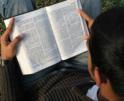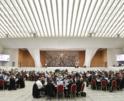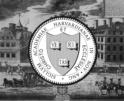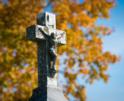
Spirituality
It is obvious that Ratzinger, as priest, bishop, theologian, and pope, was a man of faith. But it is perhaps equally important to point out that he was one of the great defenders of reason on the world stage.
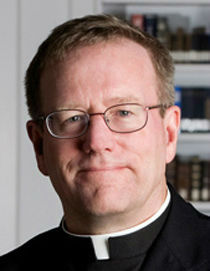
Barron
One of the most consequential churchman of the last 100 years has died. Pope Benedict XVI (formerly Joseph Ratzinger) leaves a remarkable legacy in both the Church he served and in the wider society. Often pilloried by his opponents as a fire-breathing conservative, he was in fact one of the most balanced, nuanced, and stabilizing figures within the Catholic ambit.
The defining event of his life was the Second Vatican Council, the gathering of bishops and theologians from 1962 to 1965 that placed the Catholic Church in a renewed conversation with the contemporary world. Though only 35 when he was tapped to be theological advisor to one of the leading German cardinals, Ratzinger proved to be a consequential player at Vatican II, contributing to the composition of many of its major documents and explaining its teaching to the wider culture. At the council itself, he proved adversarial to those conservative forces who were resisting the renewal, which the majority of bishops favored. One of the ironies of his life is that, in the wake of Vatican II, he found himself standing athwart progressives who wanted to push beyond the council documents and compromise the integrity of Catholicism. Thus, the "liberal" of the Council became the "conservative" of the post-conciliar years, even as, in his own judgment, his views never changed.
Someone of like mind was the Cardinal Archbishop of Krakow, Karol Wojtyla, who, upon being elected Pope John Paul II, chose Ratzinger to be his chief doctrinal officer. As head of the Congregation for the Doctrine of the Faith, Ratzinger spent 25 years articulating the teaching of Vatican II and defending it against its critics on both the left and the right. His election as Pope Benedict XVI in 2005, following the death of John Paul II, was largely a function of his being perceived as a balanced man of the Council.
It is obvious that Ratzinger, as priest, bishop, theologian, and pope, was a man of faith. But it is perhaps equally important to point out that he was one of the great defenders of reason on the world stage. At a time when many of the representatives of the secular culture were questioning our capacity to know anything as true, Ratzinger resisted what he termed "the dictatorship of relativism." He claimed, in line with the great Catholic tradition, that certain truths -- moral, intellectual, and aesthetic -- can be known and that this knowledge in fact serves to unite people across religious and cultural divides. This was precisely the point of his controversial Regensburg Address in 2006. The Christian belief that Jesus is "Logos" or word effectively builds a bridge between Christianity and any religion, philosophy, or science that deals in truth and makes "logical" assertions. In line with this instinct, Ratzinger happily engaged some of the leading atheist and skeptical philosophers of his day.
I alluded above to his reputation in some circles as "Panzerkardinal" (the tank-Cardinal), an uncompromising, even cruel, reactionary. Those who knew Joseph Ratzinger personally could only shake their heads at such a characterization. For he was, in fact, a gentle, very kind, soft-spoken academic, whose particular gift was the finding of common ground. The thousands of bishops who came to Rome for their ad limina visits during Ratzinger's years as prefect were typically impressed by the man's extraordinary capacity to listen to all perspectives and then to find an illuminating synthesis. His friends say that after a long day of work during the John Paul II years, Ratzinger most liked to visit one of the bookstores near the Vatican, find the latest book of theology, and make his way to a quiet corner of a nearby restaurant and dine alone (his favorite dish was cacio e pepe) while absorbing the text. I cannot help but think that the last 10 years, spent in quiet retreat in the Vatican gardens, represented the way he really wanted to live all of his life.
When I was a visiting scholar in Rome in the spring of 2007, I made it a point to attend Pope Benedict's Wednesday general audiences in St. Peter's Square. Before a sizable crowd, the pope would lecture on some aspect of the faith or on one of the great theologians of the Catholic tradition. His extraordinary learning, erudition, and command of languages were on clear display. But what always impressed me the most about him was his evident love for Christ. Pope Benedict said that Christianity is not an ideology or a philosophy, but rather a relationship to a person, to the living Jesus Christ. In his bearing, his gaze, the tone of his voice, and his manner, I could sense that he believed this, more to the point, that he lived it.
Thank you, Pope Benedict, for the thousand ways that you have blessed the Church. And may God grant you peace.
- Bishop Robert Barron is the founder of the global ministry, Word on Fire, and is an Auxiliary Bishop in the Archdiocese of Los Angeles.
Recent articles in the Spirituality section
-
The 'Catena Aurea': Read the Gospel this Advent with St. Thomas AquinasMichael Pakaluk
-
Focus on GodEffie Caldarola
-
Some thoughts upon returning from the second session of the synodBishop Robert Barron
-
The actual great transformationMichael Pakaluk
-
Reunions in graveyardsEffie Caldarola

